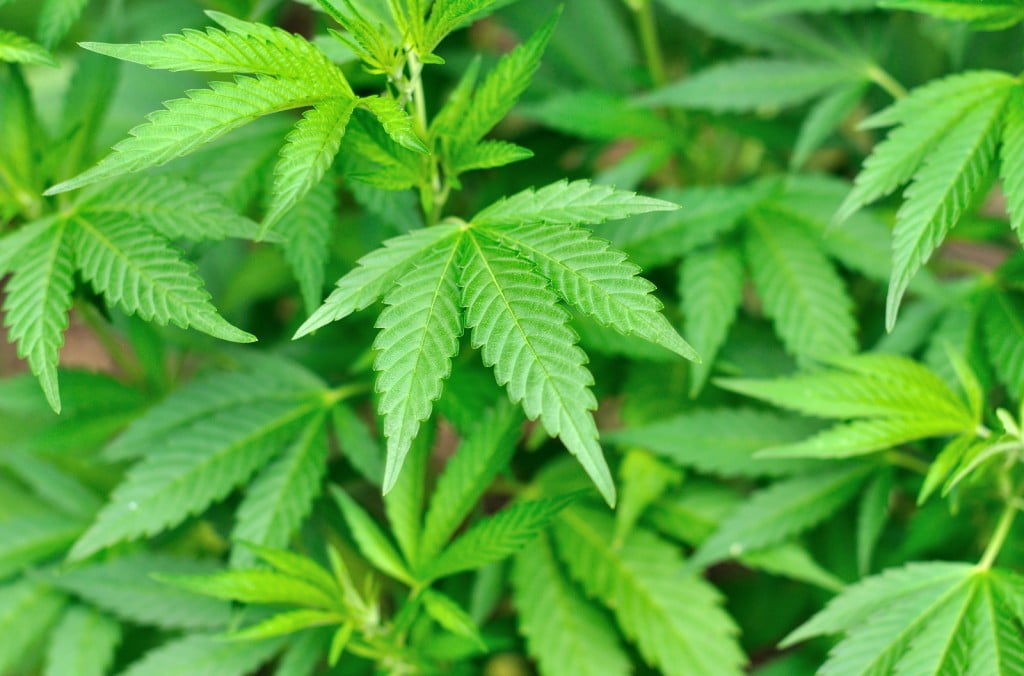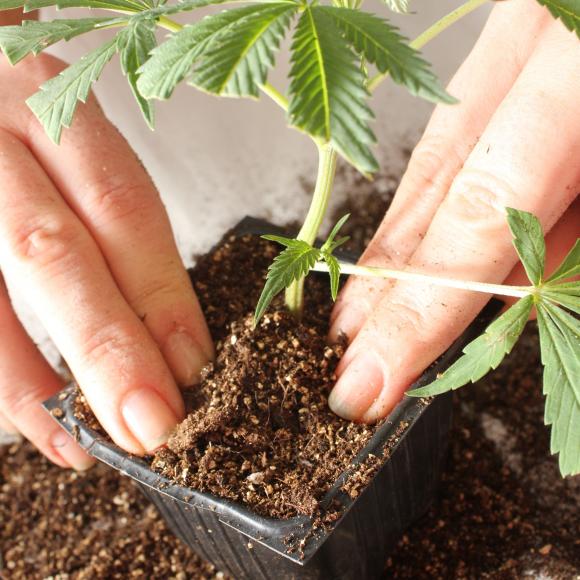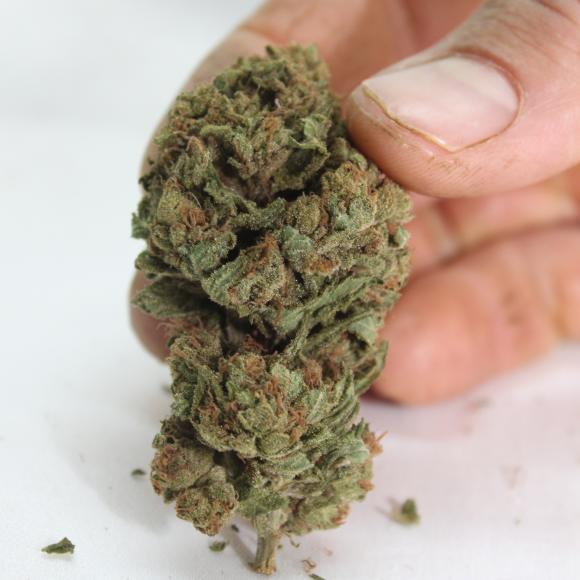Purple Kush and Lemon Haze may be items on a menu of an Amsterdam coffee shop that offers different kinds of ‘high,’ but different types of medical cannabis can now be used to treat diverse conditions. Thanks to Israeli researchers, who are working on a ‘menu’ of medical marijuana strains that will cater to various patients, this potent weed is now used to soothe anything from depression to epilepsy.
Nowadays, progressive legislation and new research allow modern science to delve into the various medical uses of cannabis, as well as to create new “designer” strains of marijuana. Israeli scientists, who have been at the forefront of marijuana’s genetic engineering for years, are now modifying marijuana to treat a range of diseases.
Nearly 5,000 years of medicinal history
Marijuana is gradually becoming a genetically modified organism (GMO), produced in greenhouse-laboratories to treat very specific conditions. By using genetic markers to control molecule counts, scientists modify the plant so it can better treat certain symptoms, thus helping millions of patients worldwide.
SEE ALSO: World’s First Precision Medical Marijuana Inhaler Hopes To Remove Stigma Of Smoking The Green Stuff
Medical marijuana was said to be used in China as early as 2,900 BC and was described as a medicinal power-flower throughout history. Israel pioneered marijuana research in 1964 when Dr. Raphael Mechoulam discovered “D9-tetrahydrocannabinol”, also known as THC, one of 70 cannabinoids (the active molecules in cannabis). Today, Israeli researchers lead the scientific world in cannabinoid research, inventing new methods of mapping the cannabis genome, while discovering new medical uses for the plant. In the last six years, with the help of the Israeli Health Ministry, the number of patients treated with cannabis grew from 100 to tens of thousands.
“A healthy kid, not a ‘high’ kid”
Agrobreeding, a computer-controlled breeding method that genetically modifies plants, creates a closely monitored, controlled environment in which scientists grow and farm marijuana strains. This selective breeding method uses big-data computers and analysis techniques that provide growers and researchers with insightful plant information, including the amounts of active THC and CBD in marijuana.
THC is responsible for the “high” feeling, while CBD is the non-psychoactive component that has been proven to have several health benefits. Cannabinoids are generally used to reduce pain, stress, as well as to increase appetite, among other uses; however, further research is necessary. “Out of 70 Cannabinoids, we have really only mapped and studied THC and CBD,” genetics researcher Yoav Giladi of the Hebrew University tells NoCamels. “The most interesting Cannabinoid is CBD, since it has proven to treat epilepsy very well. We are now able to identify the biosynthetic pathway leading to CBD formation and to create a cannabis strain with a high concentration of CBD. We want a healthy kid, not a ‘high’ kid.”
Israeli company BreedIT is combining the power of science and technology with the medical power of cannabis, helping growers breed biogenetically engineered marijuana. Collaborating with doctors and researchers from the Hebrew University in Jerusalem and the Weizmann Institute of Science in Rehovot, BreedIT manufactures agrobreeding systems for growers. These systems use big-data computers that measure molecules and DNA structures, providing tools for the genetic modeling of plants. The Intelligent Decision Support System (IDSS) that BreedIT uses speeds up the process of monitoring, analyzing and cross-referencing genetic information.
From sleep disorders to epilepsy – medical cannabis soothes a range of conditions
Sign up for our free weekly newsletter
SubscribeBreedIT exports its systems worldwide mainly for the use of marijuana growers, who acknowledge that cannabis is a potent medicine – not just a drug. “After all, eating well, sleeping well and avoiding stress are all part of good health” and medical cannabis can help patients do all that, Giladi says.
BreedIt and Seach, another Israeli company, have formed a joint venture called KanaboSeed, which uses the agrobreeding method and scientific research to provide strains specifically requested by physicians. In other words, this joint venture creates designer strains, such as Avidekel, a non-psychoactive CBD strain for treatment of epilepsy.
SEE ALSO: Marijuana Prevents Post-Traumatic Symptoms, Study Shows
Avidekel is one of the strains Tikun Olam is growing. Tikun Olam, which means “heal the world” in Hebrew, is one of the first Israeli companies to grow different strains of medical cannabis. Its facility in the northern Galilee region of Israel is considered one of the world’s most advanced in agrobreeding.
A $2.7 billion industry – and growing, literally
While medical marijuana is a growing industry, cannabis for recreational use is also gradually being legalized. In addition, hemp – which is refined into products such as hemp seed foods, hemp oil, wax, resin, rope, cloth, pulp, paper and fuel – is a multi-billion-dollar industry. In the United States, cannabis is now legal in 23 states and de-criminalized in most, which means you will not be arrested if marijuana is found in your possession in small amounts.
According to Chris Walsh, editor of the Marijuana Business Daily, the cannabis market tops $2.7 billion dollars in the US and patients who use medical marijuana spend an average $156 a month on cannabis, according to research. Medical marijuana is prescribed in the US for cancer, AIDS, asthma and glaucoma, as well as an antidepressant and an appetite stimulant. Cannabis is also used as an anti-convulsant and anti-spasmodic, with many clinical studies still ongoing.
In Israel, “cannabis treatment is prescribed by neurologists and trauma specialists for chronic pain, Parkinson’s disease, Neuropathias and many other conditions”, says Dr. Oshrat Kastel, owner of a private family clinic in Shoham, Israel.
In the US, Israel and elsewhere in the world, the use of medical marijuana is expected to expand in the next decade, thanks to new growing methods and increasing government support. And since there are many cannabinoids to study, researchers hope to reveal additional uses for marijuana in years to come.
Photos and videos courtesy of BreedIT, Tikun Olam, Seach
Related posts

Israeli Medical Technologies That Could Change The World

Harnessing Our Own Bodies For Side Effect-Free Weight Loss

Missing Protein Could Unlock Treatment For Aggressive Lung Cancer







Facebook comments